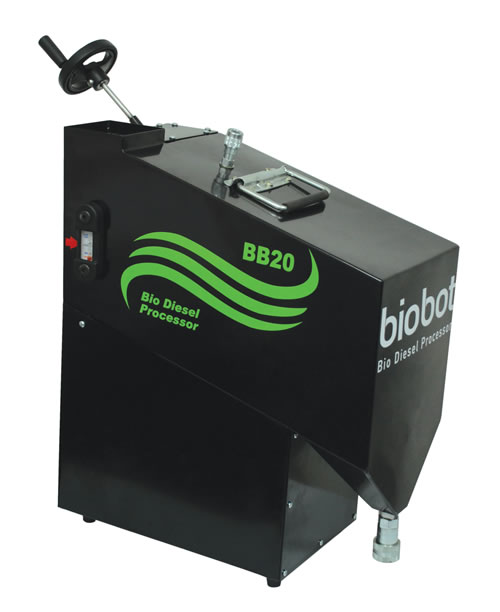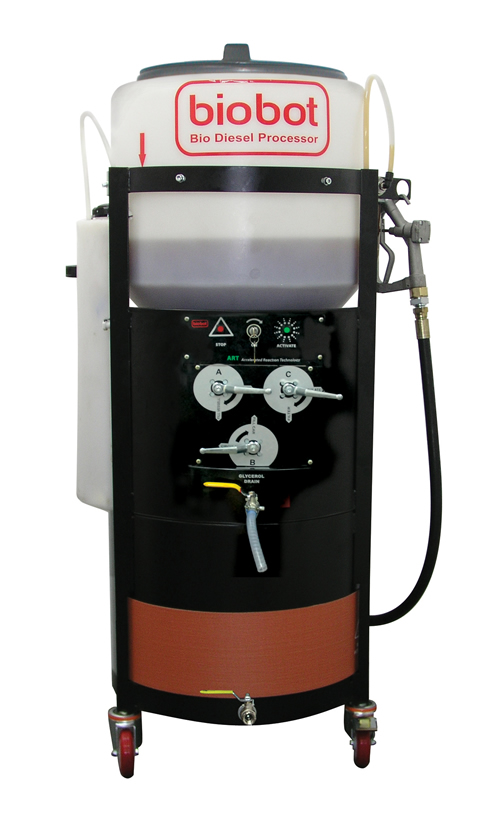
Up until 2007, anyone producing biofuel has been required by law to pay duty of 28.35p on every litre. In addition, it was necessary to submit returns to HM Revenue and Customs every month and hold a permit.
In an attempt to cut red tape, these requirements have been abolished for anyone producing up to 2,500 litres a year.
An HMRC spokesman said: "The real reason was to reduce the administrative burden on us, but it has had a knock-on effect of encouraging people to experiment with their own fuel."
Until the law change, it was estimated there were less than 1,400 enthusiasts. There are now thought to be more than 2,000 and the number is rising.
Sheila Rainger, from the RAC Foundation, said: "The diesel engine was first invented to run on peanut oil, so this is going back to basics. The tax change is to be welcomed and making your own fuel and switching to low-carbon motoring is entirely sensible."

Biodiesel is already used at the pumps blended with mineral diesel at a B5 (5% blend), this is an incremental figure that is due to increase annually to meet with various government targets regarding reducing harmful emissions. Given this information and bearing in mind the new renewable heatings incentive (RHI) as well as a 2500 litre tax free allowance we see the biodiesel industry set to rapidly expand.
Currently UK blends of 5% falls behind other European countries such as France and Germany using blends of up to 20% and 30% respectively.
Under current Government legislation, individuals are allowed to produce 2500 litres of bio diesel for their own use each year without any duty being paid. Biodiesel emits up to 80% less carbon emissions than conventional fossil fuels and can be used in most diesel vehicles without modifications.
Practical Energy solutions have launched the Biobot processor which converts waste vegetable oil (WVO) into bio diesel by heating the oil, then drawing a chemical catalyst into the mix. A reaction takes place and waste glycerol is drawn off leaving "raw" bio diesel which is then filtered or purified using an internal lon exchange process. The processor has its own dispensing fuel pump which can simply fill your vehicle once made. The waste glycerol can be easily converted into soap or a liquid fertiliser, making the waste product 100% recycled.
The process is widely used by industry and home brewers; however the BB75 ART processor is fitted with a unique feature that accelerates the reaction and settling time from hours to just minutes. The "Advance Reaction Technology" (patent pending) or ART for short enables the small producer to react and settle 75 or 150 litres of bio diesel in minutes instead of the normal 4 to 6 hours.
How does it work? The system creates an electrostatic field within the reaction vessel which drastically speeds up the reaction / settling process, ready to drain off the glycerol in around 20 minutes.
This radical time saving improvement converts a lengthy batch process into a semi-continuous one, allowing many batches of bio diesel to be made in a normal working day. This process does not involve any additional hazardous chemicals and is clean, quick and very efficient. The process is activated by simple front panel control with no moving or consumable parts to replace.
The Biobot BB20 processor is a small, portable processor designed to be used on a table top, work bench and can be conveniently tucked away after use. It is an ideal low cost, entry level model, allowing you to make a small, manageable batch of bio diesel.
Currently, there is no other commercially produced processor of its type on the market. The BB20 has been designed for table top production, converting 20 litres of waste vegetable oil (WVO) into bio diesel which is a perfect replacement for regular diesel.
No electric motor required! The BB20 deploys a unique, hand operated agitation mechanism, allowing thorough mixing of the chemicals and oil.
Prices start from £700.00
For further information contact Practical Energy Solutions on 01753 682000.
